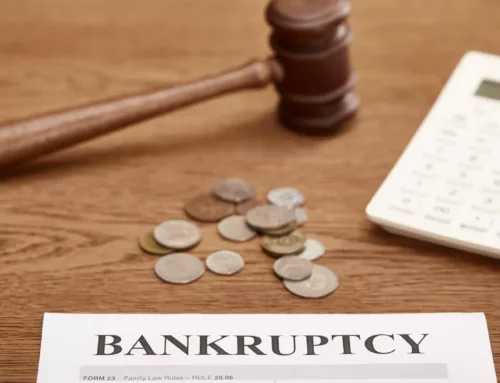Rebuilding your credit after a bankruptcy is no easy feat. While not impossible, it takes hard work, discipline, and patience to get there. Follow these simple steps carefully to get on the path to good credit.
-
Pay your Non-Bankruptcy Accounts on Time
Not all accounts are included in your bankruptcy. Some debts like student loans or alimony are non-dischargeable. These active accounts continuously impact your score. Repair your credit by paying them all in time. This lowers your debt-to-income ratio, improving your credit.
-
Review your Credit Report for Accuracy
Bankruptcy harms your credit report, but that’s much better than showing outstanding and delinquent balances. Make sure that debts that have been discharged show a $0 balance on their respective accounts. Errors make your report look worse than it is.
Dispute any errors as soon as you spot them. It’s not uncommon to find inaccuracies and unfair credit reporting. Note that your old bankruptcy should not appear on your credit report for ten years (Chapter 7 bankruptcy) or seven years (Chapter 13).
For years after your bankruptcy, check your credit reports regularly. Get help from a credit repair service to spot errors early, then file disputes.
-
Keep Your Balances Low
When your balance is low on your credit card, it means that you’re using a smaller percentage of your overall available credit. Experts recommend ensuring that your total balance is less than 30% of your credit limit. Your credit utilization can be used by creditors as an indicator that you’ll pay what you borrow
-
Get New Credit

Here are some ways you can apply for new credit:
Retail and gas cards: These typically have lower qualification standards than other unsecured cards. While most require a fair credit to qualify, some get these cards even with poor credit. Still, be aware of what these standards are because each application will result in a hard credit pull. You might not get the effect you’re going for if your application gets rejected. Make small purchases and be sure to pay the balance off.
Secured credit cards: A secured credit card requires a cash security deposit, making them easier to acquire than unsecured ones. Start rebuilding your credit by making payments on time. Credit card issuers will often convert you to an unsecured credit card or increase your credit limit after a period of regular timely payments.
Credit builder loan: As the name suggests, this loan helps you improve your credit. Here you have to fully pay off the lender before they release the money.
-
Get a Co-Signer
Having a friend or relative co-sign helps your chances of approval for credit under your name even post-bankruptcy. Auto loans, mortgages, and even rental agreements often take cosigners. Paying successfully boosts your credit score and creditworthiness.
-
Become an authorized user
If you can’t get a credit card, try to get someone to add you as an authorized user on theirs. You benefit from just being on the account. Payments will show up on your credit so long as the credit card issuer reports them to the credit bureaus.
-
Take Care when Applying for Credit
Part of your credit score is based on how many new credit applications you make. Multiple inquiries in a short period can hurt your credit score because it can be indicative of risky behavior especially if you’re getting rejected.
Check the requirements first if it fits your current credit profile. Keep an eye on your credit and be aware of the issuer’s underwriting standards, so you apply for credit more wisely.
If you keep on getting denied new credit cards, improve your credit history in other ways first. This increases the chances of your application getting approved. As mentioned earlier, you can try getting a secured card or becoming an authorized user.
-
Keep Up Payments with New Credit Cards
If you’ve managed to obtain a new credit card be sure to keep up to date on your payments. Payment history is a crucial factor in determining your credit score.
Here are some ways you can ensure timely payments:
- Set reminders for payments
- Enroll in autopay when possible
- Pay off your card multiple times every month
-
Have Your Payments be Reported to the Credit Bureaus
Creditors and lenders have no obligation to report your activity to the bureaus. Ensure that they report to the three major credit bureaus — Equifax, TransUnion, and Experian — to capture positive activity and raise your credit score.
If you have any concerns about how your bankruptcy case can affect your credit score, or if you have any questions about bankruptcy application, our lawyers at Hammerschmidt Stickradt & Associates can help you examine all options available. Call us now for a free initial consultation.



